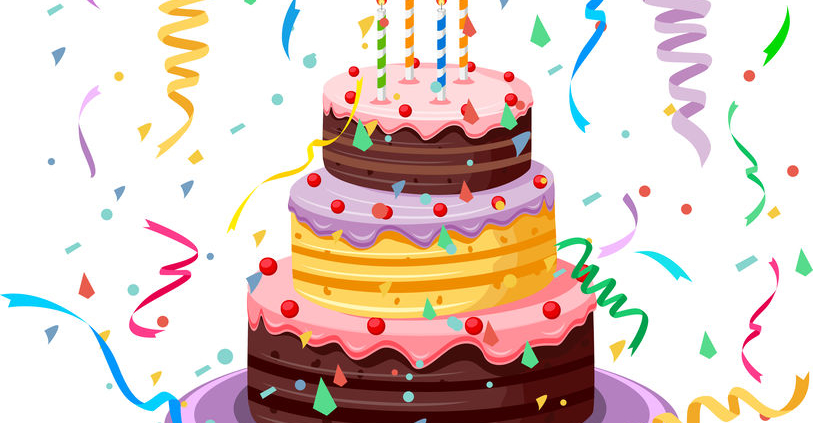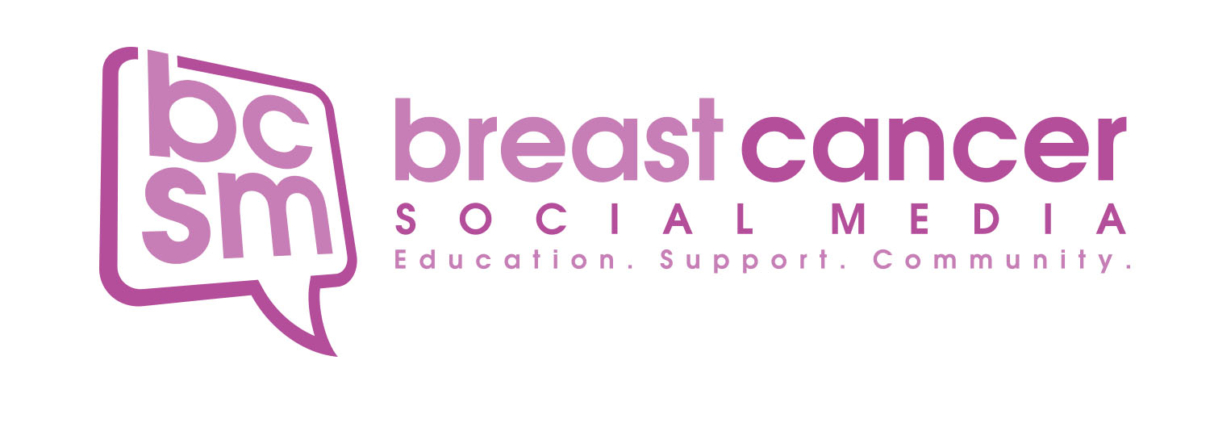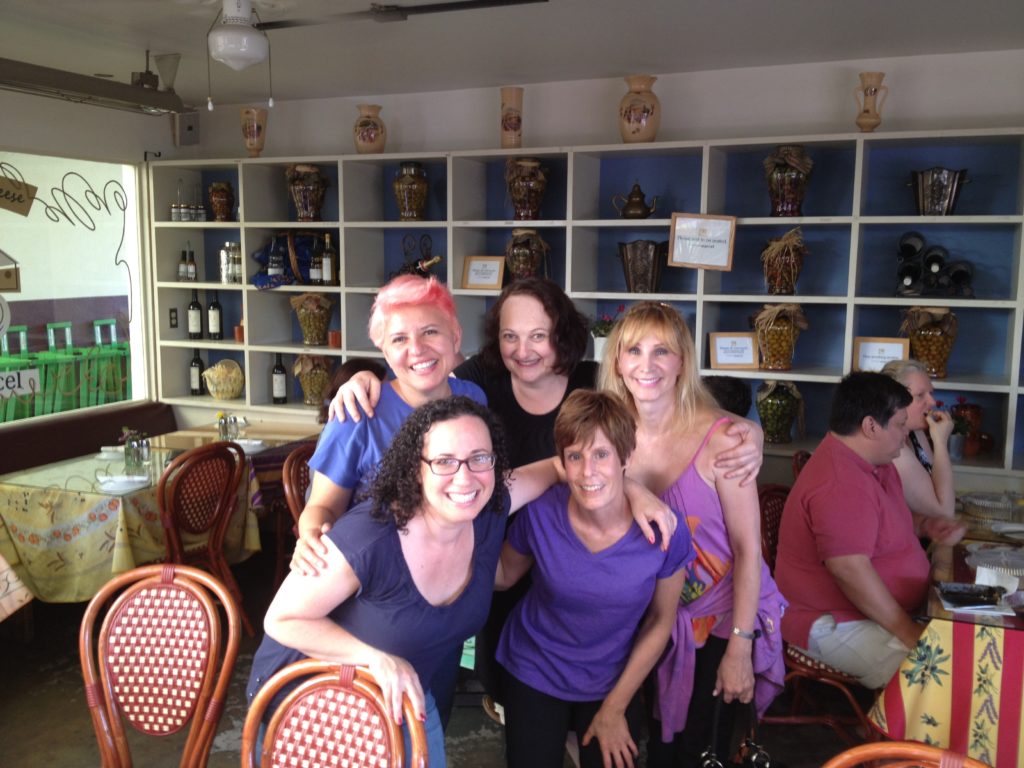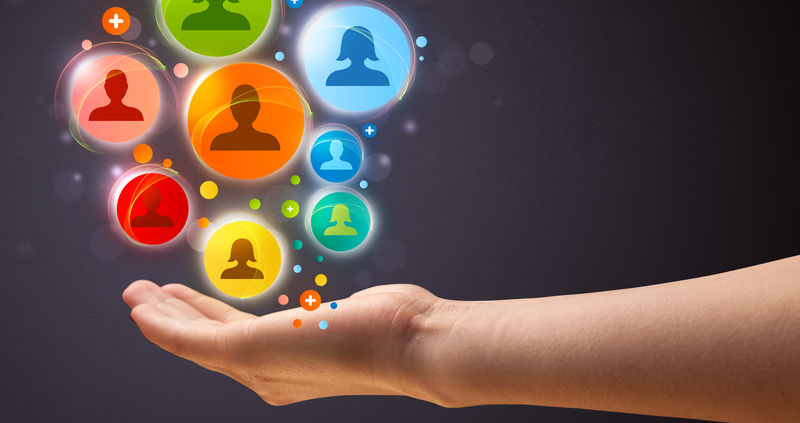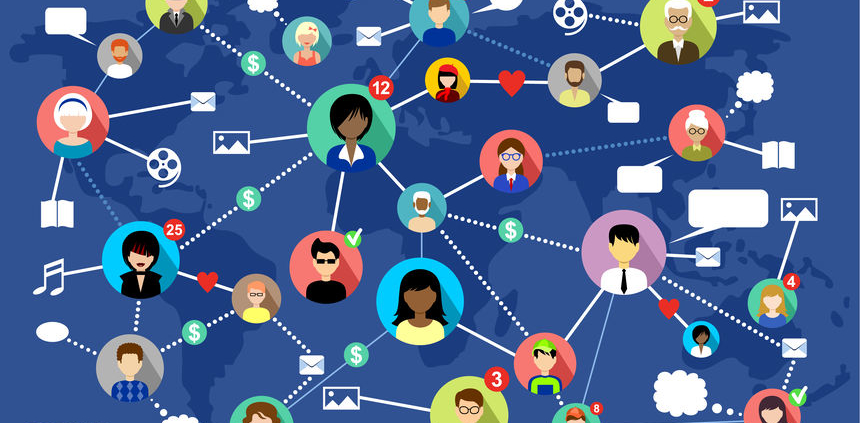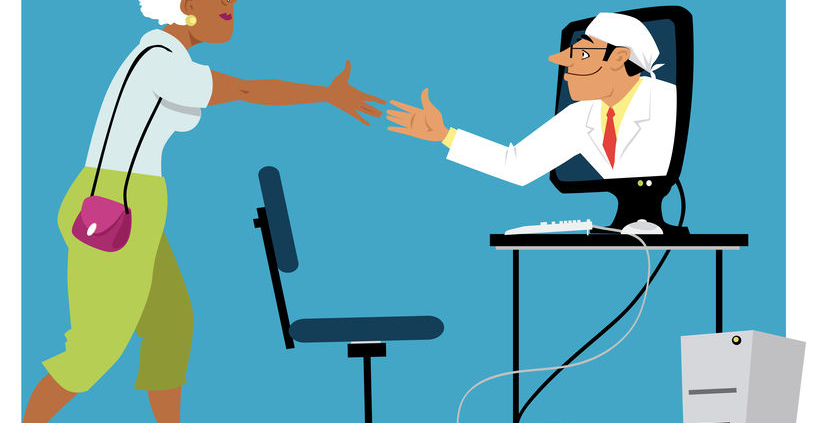Twitter Bio: Breast Surgeon, #BCSM Co-Moderator, Teacher, Advocate, Author, Organic Vegetable Gardener, and Gluten-Free
Facebook Bio: Dr. Deanna J. Attai is a breast surgeon dedicated to state-of-the-art minimally invasive care for women with benign and malignant breast disease. Areas of expertise include ultrasound, minimally invasive breast biopsy, cryoablation for benign and malignant tumors, and accelerated partial breast irradiation. Dr. Attai is actively involved in research and patient and physician education in addition to her busy clinical practice.
Deanna Attai, MD, a private-practice surgeon in Burbank, Calif., is best known in the social media world for her leadership in the Breast Cancer Social Media community, including her role as co-moderator of the BCSM TweetChat every Monday evening. She is featured in 25-and-counting videos on her YouTube channel. She blogs regularly about breast cancer topics on her website; shares personal reflections on her wellness blog; and promotes breast cancer awareness and knowledge on her Facebook page.
Like many physicians, she initially was dubious about the benefits of social media and waded in only to support a professional organization. A lot has changed since then.
“If you had told me a few years ago that not only would I be on Twitter, but I would be driving an hour and a half to the funeral of a woman I got to know through Twitter and that I would have this huge following on social media, I would have never believed it because this is so far removed from anything I have done previously,” she said.
“But this has changed me personally, it has definitely changed me professionally, and all for the better. And I can’t imagine practicing without it at this point.”
How did you get involved in social media?
“It’s all the fault of the American Society of Breast Surgeons [ASBS]. I am chair of the communications committee, and in 2011, the staff person I work with and I thought that we might be able to use social media to increase the visibility of our organization and also offer patient education.
“I had to go before the board of directors and explain why, as an organization, we need to be involved in social media. And I can tell you, I got a lot of blank stares at that meeting.
“Before I went to the board meeting, I set up a Facebook page for my practice. And then I opened a Twitter account, and I just started following and listening. I followed a lot of cancer organizations, I followed a lot of news media organizations. I started following some professional organizations. And then, I started noticing the conversations that were going on specifically related to breast cancer among patients and advocates.
“The first time I realized that I really have a role on Twitter was one night when two women on Twitter were discussing one of their friends who had just been diagnosed with Paget’s disease. One said, ‘Her doctor told her she needs a mastectomy, but I also read that maybe she could get an MRI.’ And I just sort of watched these women with a little bit of horror, thinking, why are doctors not answering these questions? So I kind of butted in and said, ‘I’m a breast surgeon, can I give you any guidance?’
“And I ended up doing the same thing that I do day in and day out if a colleague or friend calls me and says, ‘My mother was just diagnosed—what do I need to do?’ I explained the usual workup for Paget’s disease and the surgical options, depending on what the MRI showed. I found out where in the country she was located, and I got on the American Society of Breast Surgeons website to find a couple of ASBrS members in the area in case she wanted a second opinion.
“I got an email from that woman about a month later, saying the patient had the MRI, the cancer was localized, she had a lumpectomy—and thanking me for my help. That was when I realized there are so many patients who are just not getting the information they need from their physician, and they are going online to look for information whether we are there or not.
“So I think it’s part of our responsibility as physicians to make sure that the information is accurate, and that people are getting the answers they need. And even if we just raise a couple of questions that they can take back to their own physicians, then we’ve done our job.”
The #bcsmchat on Twitter is the envy of every medical community that is interested in social media. What makes it so successful?
“Two breast cancer survivors who are very active on Twitter—Jody Schoger [@jodyms] and Alicia Staley [@stales]—started the breast cancer social media weekly chat in July 2011. I missed the first one, but I joined the second, and basically have participated ever since. I came on as an official co-moderator in October 2011.
“The success is due to the integrity and the vision of Jody and Alicia. When they first found each other on Twitter, they realized that no one was really talking about breast cancer in a constructive way. A lot of times the people who are online looking for information about cancer have not had a pleasant experience with their diagnosis and treatment and they need to discuss issues or problems. So Jody and Alicia sought to provide a supportive environment and evidence-based information and avoid perpetuating media hysteria and misinformation.
“The community essentially polices itself. Some people come on to the chat trying to promote their specific agenda and companies come on to promote their products, and that gets shut down very quickly.
“We are having docs join in left and right, and it’s fantastic. The patients absolutely love it because they have this whole network of specialists that are available to them, even outside of chat hours. Patients sometimes send out a tweet asking a question about a study or something they have read, and they will tag a couple of us and we all respond. It provides us a good opportunity to help empower and educate patients.
“Jody, Alicia, and I come up with weekly topics. I tend to take the lead when we are talking about medical things. For example, when we did a chat based on the American Society of Breast Surgeons’ meeting in May and the American Society of Clinical Oncology Breast Cancer Symposium in September, I basically rounded up the docs who were going to be involved, came up with the topics, and I moderated.
“If Jody is leading the discussion on a certain topic, I’ll be the one in the background, fielding the side questions or the things that may not be exactly pertinent. So we often have multiple conversations going on at once. It often takes the three of us to keep it under control.
“One week we had a topic scheduled, and two of the group members, both with end-stage metastatic disease, died that morning, within hours of each other. So, that night we spent most of the chat talking about them—the issues of death and dying, but also honoring our members.
“Jody and Alicia and I all kind of patrol the hashtag (#bcsm) during the week. People will send out tweets using the hashtag—maybe it’s someone who has written a blog post, maybe it’s somebody posting an article, sometimes it’s someone saying, ‘First day of chemo today; I’m scared.’ We call it our ‘bat signal,’ and we tell people if they have any questions or issues during the week, just send out a tweet with #BCSM and we’ll all come running.”
How has social media affected your practice?
“You don’t use social media to get patients. I don’t think anyone will come to me just because I have a good Facebook page or because I’m on Twitter. But Twitter gives me a huge network—just like it does for the patients—of specialists all across the country that I draw from, personally and professionally, for my own education and for what I can provide to my patients. And these are some of the leaders in their field. So I have access to the best and the brightest in medical oncology and surgery and other specialties.
“Also, the interactions I have with patients on Twitter have made me realize just how difficult our treatments really are for them. Of course, we see the patients who come to our offices and we ask them questions, but when we hear these women talking online, it lets us see what happens behind closed doors. It gives us a window into what really is going on with our patients and how our treatments and our words really affect them.
“This has changed the way I interact with my patients. I am much more aware that they are putting on their happy face when they come into the office. The reality is I just have to dig a little deeper to get to the issues that are concerning them.”
What is the #bcsm-LATweetup?
“There are several of us who are in southern California, and one of the #bcsm members came up with the idea that we should all get together. So maybe five or six of us met—that’s a Tweetup—and it was like we were all long-lost high school friends.
“When we scheduled the next one, another member, Donna Peach (@danceswithpens), said she wanted to come. She was a writer by trade and a dancer and such an incredibly warm and loving person that we all really gravitated towards her.
“By the time our TweetUp was scheduled, it was clear from Donna’s blog and her tweets that she was not well and probably towards the end stage. While we were sitting at the restaurant waiting for her, one of our group, Lori Marx-Rubiner (@regrounding) got a text saying Donna’s husband couldn’t find a handicap ramp—Donna was in a wheelchair by now—and they were going to turn around and go home. And Lori got up from the table, ran out, and basically stopped traffic to help get Donna out of the vehicle and wheel her up to the table. And we were all together for about an hour.
“Donna made such an impression on us that when she passed, it was like we had known her all our lives. Three of us drove down to the funeral. We had known her for only a little while, but she was a family member.”
What advice do you have for physicians who have not yet tried social media?
“When I started using Twitter, one of the first things I did was look at organizations like the American Cancer Society and check who is following them and I would start following some of those people. That led me to a few patients and advocates who seemed to have a prominent voice, and I looked to see who was following them and who they were following. And that is how I started figuring how who I need to listen to. There were many I started following initially whom I later un-followed because their voice wasn’t anything I wanted to hear.
“The best way to start is just to go in and look and listen. And you will figure out where your community or where your niche is. Or you may never say a word. You may just use it to soak in the information, and that’s perfectly fine. The whole world is open to anyone, which is incredible.
“Also, don’t be afraid as a physician in social media to humanize yourself. I put a lot of my garden stuff on my blog and on my Facebook page. I’ll get more ‘likes’ when I post vegetables from my garden than any breast cancer story that I post. And the feedback that I get, both from my patients and from the people that I haven’t met but who follow me online, is ‘Oh, my gosh, the doctor is a real person.’”

